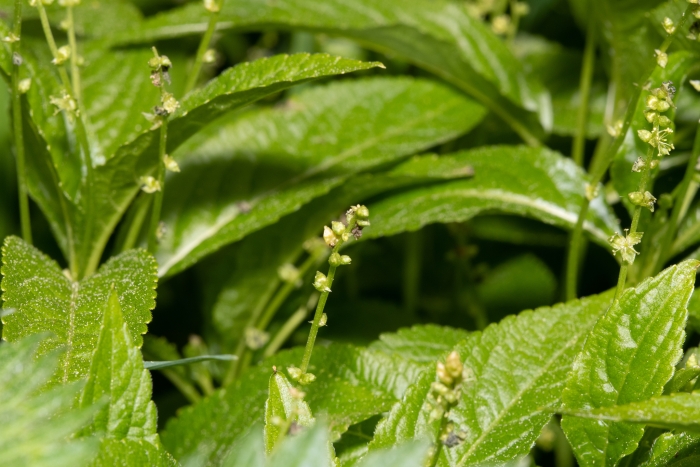Dog’s Mercury
(Mercurialis perennis)
Dog’s Mercury (Mercurialis perennis)
/
/

Поляков Александр
CC BY 4.0
Image By:
Поляков Александр
Recorded By:
Copyright:
CC BY 4.0
Copyright Notice:
Photo by: Поляков Александр | License Type: CC BY 4.0 | License URL: http://creativecommons.org/licenses/by/4.0/ | Rights Holder: Поляков Александр | Publisher: iNaturalist | Date Created: 2023-05-11T13:07:02-07:00 |











Estimated Native Range
Summary
Mercurialis perennis, commonly known as Dog’s Mercury, is a herbaceous perennial native to a variety of woodland habitats, including beech, oak, and ash woodlands, as well as hedgerows and shady places throughout Europe, extending to Algeria, Iran, Turkey, and the Caucasus. It typically forms dense carpets under the canopy of these woodlands, often indicating ancient woodland status. Dog’s Mercury thrives in moist, well-drained, alkaline soils and is adapted to dappled shade or partial sunlight.
Dog’s Mercury is not typically cultivated due to its toxicity and lack of ornamental value. However, it can be used in restoration projects or naturalized woodland settings where its ability to form dense ground cover can suppress weeds. It is important to handle with care, as all parts of the plant are poisonous if ingested. Gardeners should also be aware that it can spread aggressively by rhizomes, potentially becoming a nuisance in the garden. It has no notable flower display, as the flowers are small, green, and inconspicuous, blooming in early spring. Despite its toxicity, it plays a role in its native ecosystem by providing early-season pollen for bees.CC BY-SA 4.0
Dog’s Mercury is not typically cultivated due to its toxicity and lack of ornamental value. However, it can be used in restoration projects or naturalized woodland settings where its ability to form dense ground cover can suppress weeds. It is important to handle with care, as all parts of the plant are poisonous if ingested. Gardeners should also be aware that it can spread aggressively by rhizomes, potentially becoming a nuisance in the garden. It has no notable flower display, as the flowers are small, green, and inconspicuous, blooming in early spring. Despite its toxicity, it plays a role in its native ecosystem by providing early-season pollen for bees.CC BY-SA 4.0
Plant Description
- Plant Type: Herb
- Height: 0.75-0.8 feet
- Width: 1-3 feet
- Growth Rate: Slow, Moderate
- Flower Color: Green
- Flowering Season: Spring
- Leaf Retention: Deciduous
Growth Requirements
- Sun: Full Shade
- Water: Medium
- Drainage: Fast, Medium, Slow
Common Uses
Low Maintenance
Natural Habitat
Variety of woodland habitats, including beech, oak, and ash woodlands, as well as hedgerows and shady places
Other Names
Common Names: Dog’s Mercury, Annual Mercury
Scientific Names: , Mercurialis perennis, Mercurialis alpina, Mercurialis cantabrica, Mercurialis cynocrambe, Mercurialis cynocrampe, Mercurialis longifolia, Mercurialis nemoralis, Mercurialis perennis f. genuina, Mercurialis perennis f. glabra
GBIF Accepted Name: